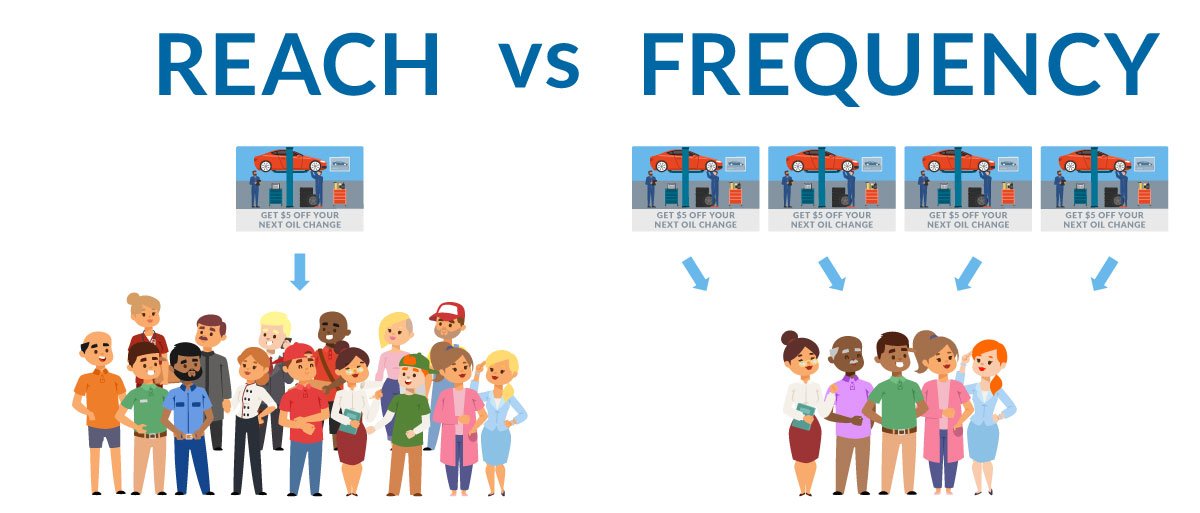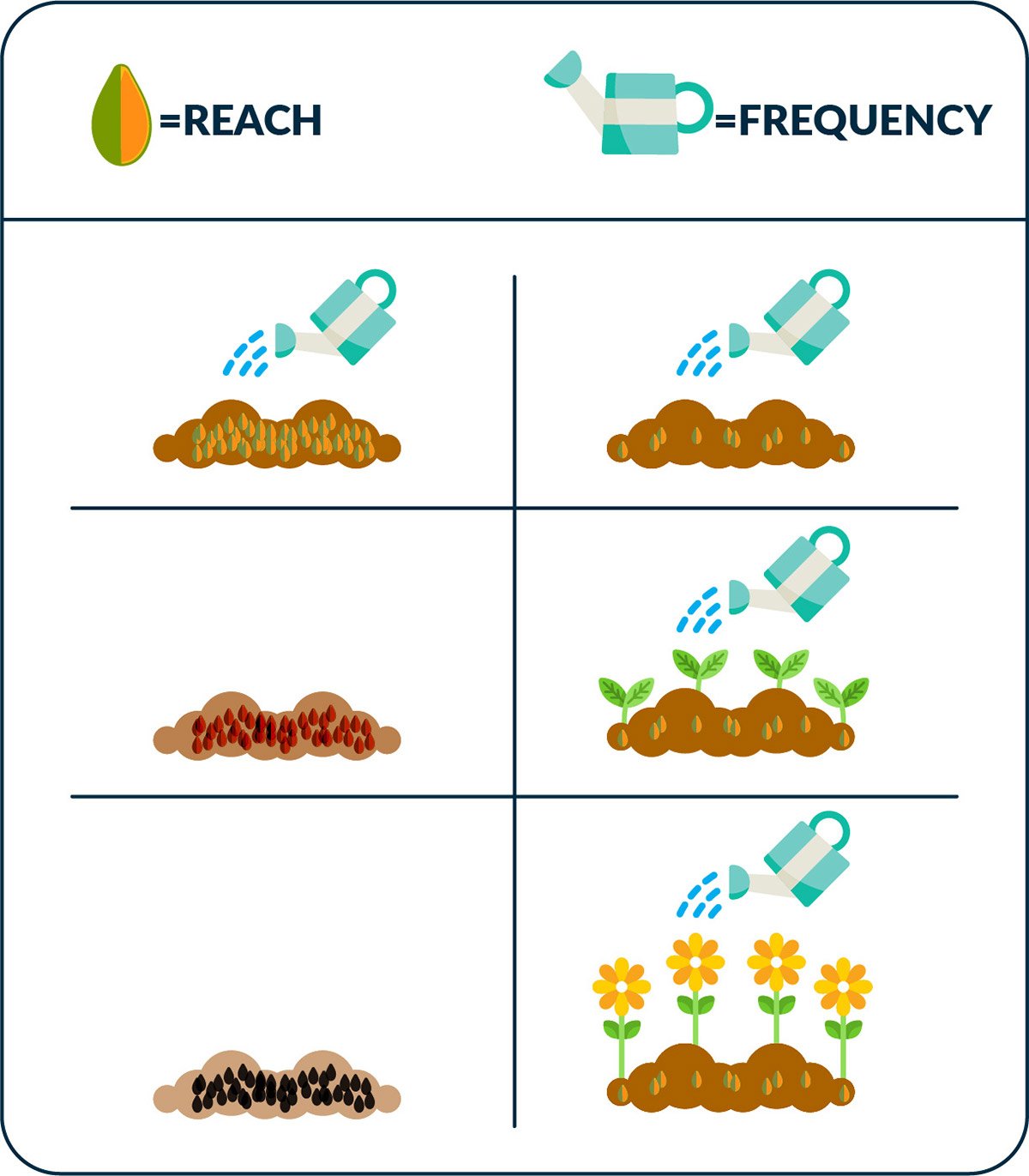In a world of limitless budgets, you’d be able to send direct mail to as many prospects as you want for as long as it takes to convert them into customers. Sadly, most of us don’t live in that world. Oftentimes, you have to choose between maximizing the number of people on the mailing list or sending multiple campaigns to a smaller list.
We’re talking about reach and frequency. But which should you prioritize to get the most out of your marketing budget?
What Are Reach and Frequency?
Frequency and reach are terms used mostly in the planning and measurement stages of a marketing campaign. But they also represent two ways of prioritizing your advertising dollars.
Reach is the total number of people exposed to your marketing message. In direct mail terms, your reach would represent the total number of addresses on your mailing list. So, if you were mailing to 10,000 addresses, your reach would be 10,000.
Frequency is the number of times the people on your list are exposed to your marketing message or brand. If you choose to mail to the same list of people three times, your frequency would be three.

Focus on Frequency for Better Returns
If you’re planning a direct mail campaign and you haven’t factored frequency, or repetition, into your strategy, then we strongly suggest decreasing your reach so you can increase your frequency. For example, if you only have enough budget to target 10,000 people one time or 2,000 people five times, it would be more beneficial to target 2,000 people five times.
You may think this sounds counterintuitive. Why wouldn’t you want your message to be seen by as many people as possible? We’re not saying that reach isn’t important. We’re saying reach without frequency is a waste of money because you’re unlikely to see much of a return from a one-off marketing campaign.
In his book, Permission Marketing author Seth Godin uses an analogy of seeds and water to explain why reach without frequency is often ineffective.
If you have 100 seeds and 100 watering cans, would you be better off planting all 100 seeds and watering them once, or would it be better to plant 20 seeds and water them five times? Let’s see how each scenario would play out.

In this analogy, the seeds represent reach, while the watering cans represent frequency. If you plant your seeds and only water them once, you’ll probably end up with a dead flower bed. However, if you plant fewer seeds and water them multiple times, you’ll have a beautiful, growing garden.
Apply this principle to direct mail, and it’s clear that reach without frequency leads to nothing, while the right combination of reach and frequency leads to growth. Just as the smart gardener nurtures their seeds with frequent watering, the smart marketer nurtures their prospects with frequent interaction.
How to Determine Your Optimal Frequency
It’s a fact that it takes three or more exposures to an advertising message before consumers take action. While the number of exposures varies from business to business, it remains true that consistently marketing to the same group of people is the most effective way to get them to act.
You may find that your ideal frequency is two, or it could be seven. The only way to figure out what works best for you is to start mailing more frequently.
Don’t Quit Too Soon
Many direct mailers give up if their first campaign doesn’t produce immediate results. The truth is that marketing is a process, and that process takes time to work effectively. While frequency isn’t the only factor that determines direct mail success, in most cases, if you’re persistent you’ll eventually succeed. And if your budget is squeezed and you find yourself considering one large mailing as opposed to several smaller ones, remember that reach without frequency is a waste of money.
